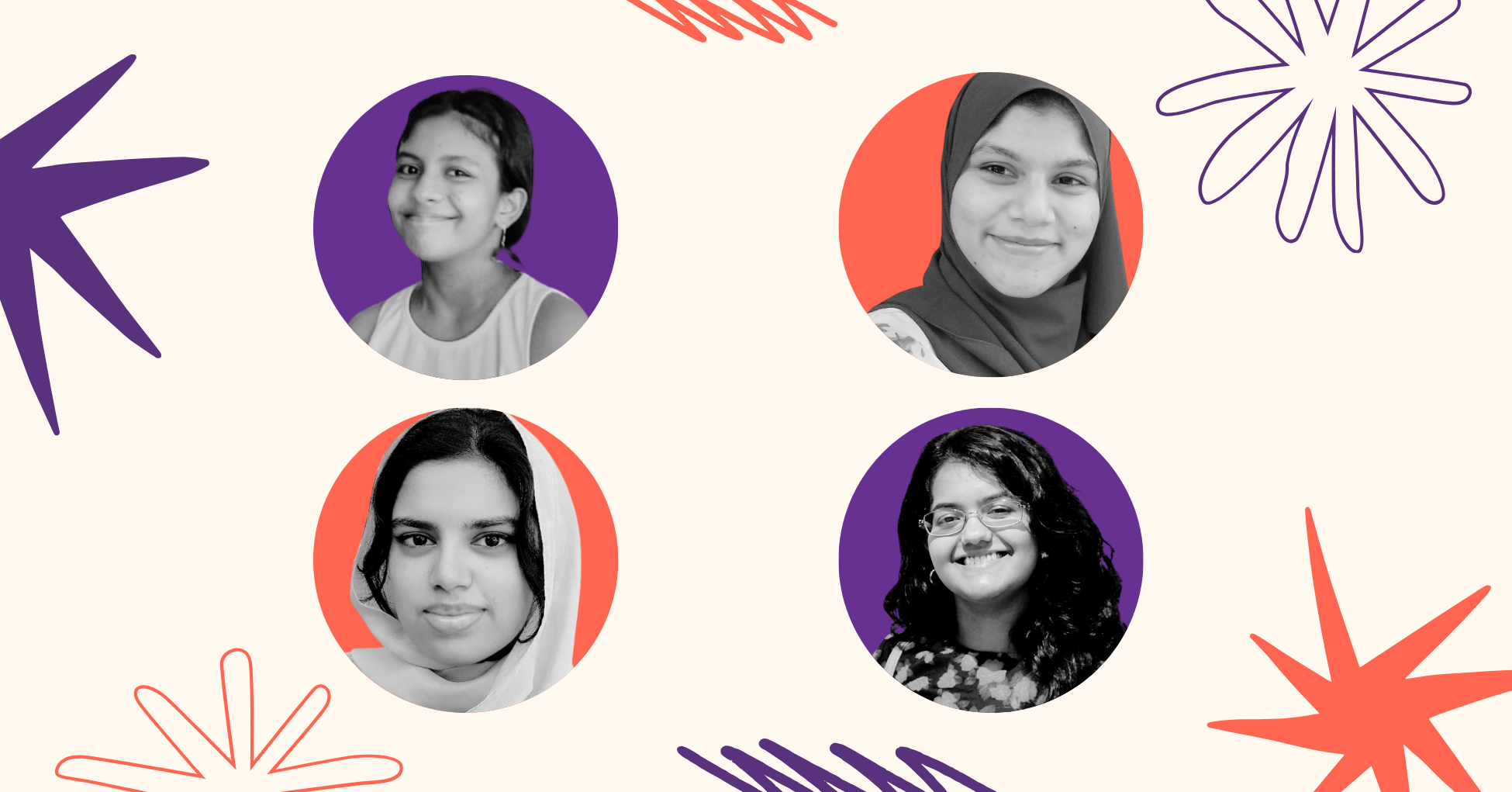Being an active participant in the sphere of advocacy, volunteerism and rights-based work since its inception in 2020, Sisterhood Initiative (SI) has seen growth from a youth group to a young-women led civil society organization. The growth and its work have been recognized locally and internationally.
As a self-led group that has worked through a global pandemic and a national economic and political crisis, the group has continued to stay resilient in the face of change. This change also comes in the form of change of leadership, with Himaya Hareed- Head of Communications, Piyumi Wattuhewa- Finance Coordinator, Angela Forman- Head of Finance and Administration and Samiha Muhsin- Administration Coordinator jointly leading Sisterhood Initiative locally as Nabeela Iqbal, the Founder was recently chosen as a Chevening Scholar and is pursuing her Masters abroad. Iqbal will continue to oversee operations and will support the team remotely.
The current local leadership is made up of the initial founding members who joined SI, with three of them joining the group just after the completion of their studies at school. Years down the line, having juggled various roles from being members to handling core positions in the organization- they feel ready to take on the new challenges.
Wattuhewa and Forman are based in Colombo while Muhsin and Hareed are based in Kandy – thus the leadership is equally represented between Colombo and Kandy, two areas that the organization’s work has been based at primarily. “This transition is not new to us. The team has seen transition since inception as some of our core team members are now based in the UK, Pakistan and Qatar. Even though they work remotely, everything and everyone coordinates well and work together successfully putting together events, workshops and programmes,” stated Forman.
Wattuhewa, also shared that this leadership change was not a change that the organization cannot overcome. “The effort at Sisterhood Initiative has always been a group effort. Sharing responsibility is one of our core values and we work so that we carry the weight among all of us.”
Iqbal who is currently pursuing her Masters in Human Rights at University College London (UCL), stated that while her role shifts from overseeing operations in-person to doing it remotely, there is not a huge difference to her role. “I will definitely feel homesick not being able to work in person with the team. But I feel that organizations that do not see a change in leadership are difficult to be trusted. Because it means that nobody else has been trained or given the opportunity to take up a leadership role.”
What can be expected from SI in the future?
Over the past year, the organization has conducted trailblazing work such as the social media campaign that was conducted in partnership with the Feminist Collective for Economic Justice (FCEJ)- which featured the struggles by the most vulnerable groups in the society during the economic crisis while highlighting the critical need for social security. The organization also conducted an Interfaith Ifthar, which presented a space for interfaith and multi-cultural dialogue and understanding among participants hailing from different religious and cultural backgrounds.
Talking about the future plans for the organisation, Forman commented on how the team has expanded in the past year. “Some of our future projects and programmes will be headed and managed by participants of our 2022/2023 Fellowship Programme who were trained and mentored by our core team. We train and give them hands-on experiences on planning, managing and carrying out the work we do. This ensures that we will have members who will be able to join the core team and continue the work we do. This way we are able to inspire female leadership and ensure the continuity of our work.”
Muhsin pointed out that a new psychosocial support wing led by Sumaiya Frahath, a participant in the Fellowship Programme, was added to the Support Team. “We thought it would be beneficial to have this form of support for those who come to our Team for legal consultations. This has proven to be successful as those who have sought psychosocial support initially prior to consulting Shifa Najmudeen, Legal Advisor, were able to better understand the legal consultation and make better decisions.” She also added that the Support Team works remotely, emphasizing that working remotely is nothing new to the organization because soon after its inception- the team had to conduct its work remotely due to the pandemic and lockdowns.
Currently, the organization carries out some of its work in-person and on the field and also does certain campaigns and programmes online as well.
Hareed shared that the organisation is venturing into combining different forms of advocacy such as the ‘Write for Justice’ programme. “This programme will give writers of minority groups a voice and space to express themselves. It would also provide an opportunity for participants to critically analyse topics pertaining to human rights and social justice while also developing their skills in critical thinking, creative writing, communications and critical analysis, via workshops, field visits and hybrid programmes.”
The organization is also looking forward to expanding its work geographically with plans to conduct some programmes in Puttalam.
Change is inevitable
“The team has been prepping for change since the beginning as we realize that the work we do has to sustain beyond us. We train and add new members in. Ever since I joined, I have also been switching roles and I find I am able to reach out to the team and get clarifications,” shared Muhsin.
Adding to this, Wattuhewa shared that switching roles and taking up new roles have always been a learning curve. “We have been able to prepare better with the resources we have, the knowledge we’ve gained and our experiences handling various responsibilities.”
By Muqaddasa Wahid for Sisterhood Initiative.
